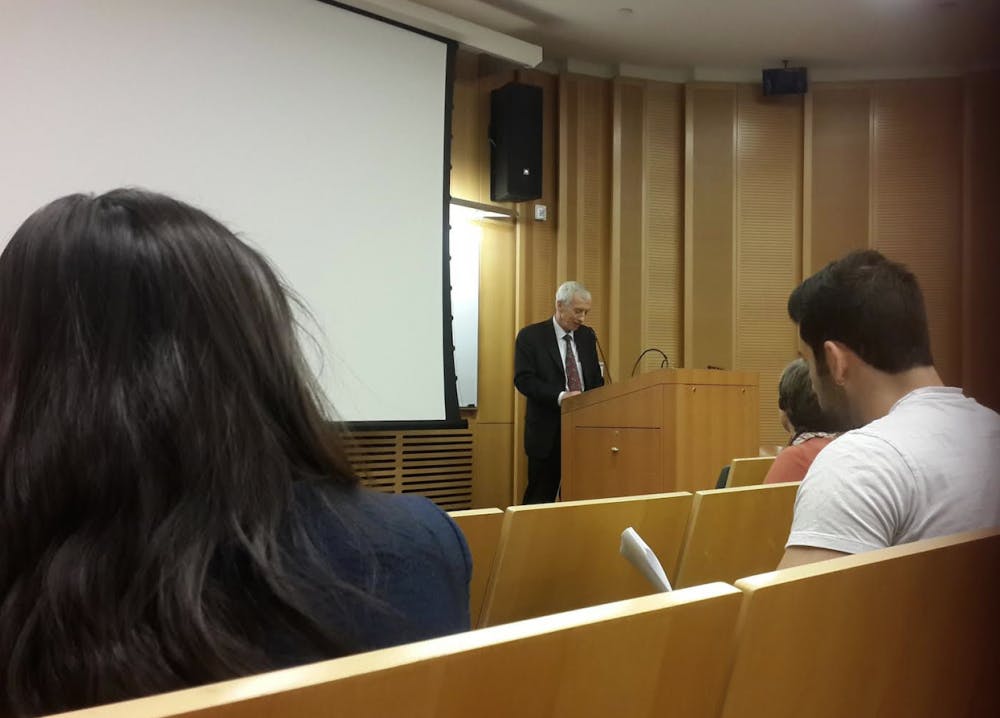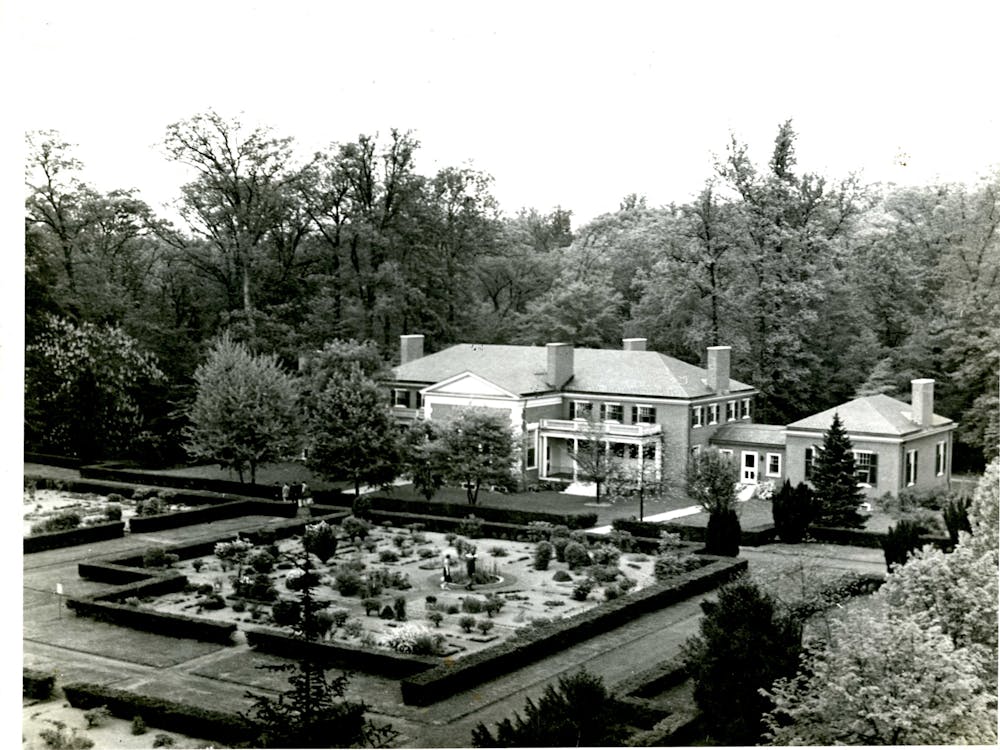Paul Pillar, a former CIA analyst, spoke about U.S. involvement in the Middle East at a talk titled “Why America Misunderstands the Middle East” on Wednesday. The Hopkins chapter of the John Quincy Adams Society, a student group that seeks to provide a nonpartisan perspective on international politics, hosted the event.
Pillar argued that American foreign policy often fails because the U.S. historically has not faced the same competition for land and resources as many other countries.
“We Americans have had it good in regards to other aspects of our geographic and physical circumstances,” he said. “As for our geographic expansion, a lot of it just plopped into our laps.”
He specifically addressed the Israeli-Palestinian conflict, which began in the mid-20th century. Many believe that Israel has a religious claim to the land currently known as Palestine, while others are opposed to Israel’s militarized occupation of some Palestinian territory.
Pillar explained that many prominent Israeli leaders have acknowledged that both Israel and Palestine have some claim to the land, including the first Israeli Prime Minister David Ben-Gurion. This counters the belief of some that Palestinians have no claim to that land.
According to Pillar, the best course of action for American foreign policy would be for Americans to recognize the Palestinians as a people and, from there, work toward neutral answers to the conflict. One such possibility is a two-state solution in which both Israel and Palestine coexist at peace with one another.
“American politicians say that Palestinians don’t exist,” he said. “As with many matters involving Israel, Israelis themselves have been much more open and frank than the Americans have been.”
Pillar also said that the U.S. makes a critical mistake in assuming that other countries will be receptive to liberal democracy, like with Iraqi-Iranian relations. He explained that many American policymakers do not realize that, because Iraq and Iran fought a war against one another for eight years, their reasons for having more diplomatic relationships with each other now should not be seen as a threat.
“The perspective so often in the United States right now is that the Iranians have too much influence in Iraq and we need to do something about that,” he said.
Junior Vrshank Ravi appreciated Pillar’s perspective but wished that the lecture had focused more on the moral consequences of U.S. action.
“If you’re going to war in Iraq, you are killing tons of people,” he said. “Nobody talks about it like that, which I found very shocking.”
Sophomore Isaac Tong, co-director of marketing for the John Quincy Adams Society, explained that the event was in line with the club’s main objectives.
“The organization allows students to have opportunities to be more educated about foreign policy,” Tong said.























Please note All comments are eligible for publication in The News-Letter.